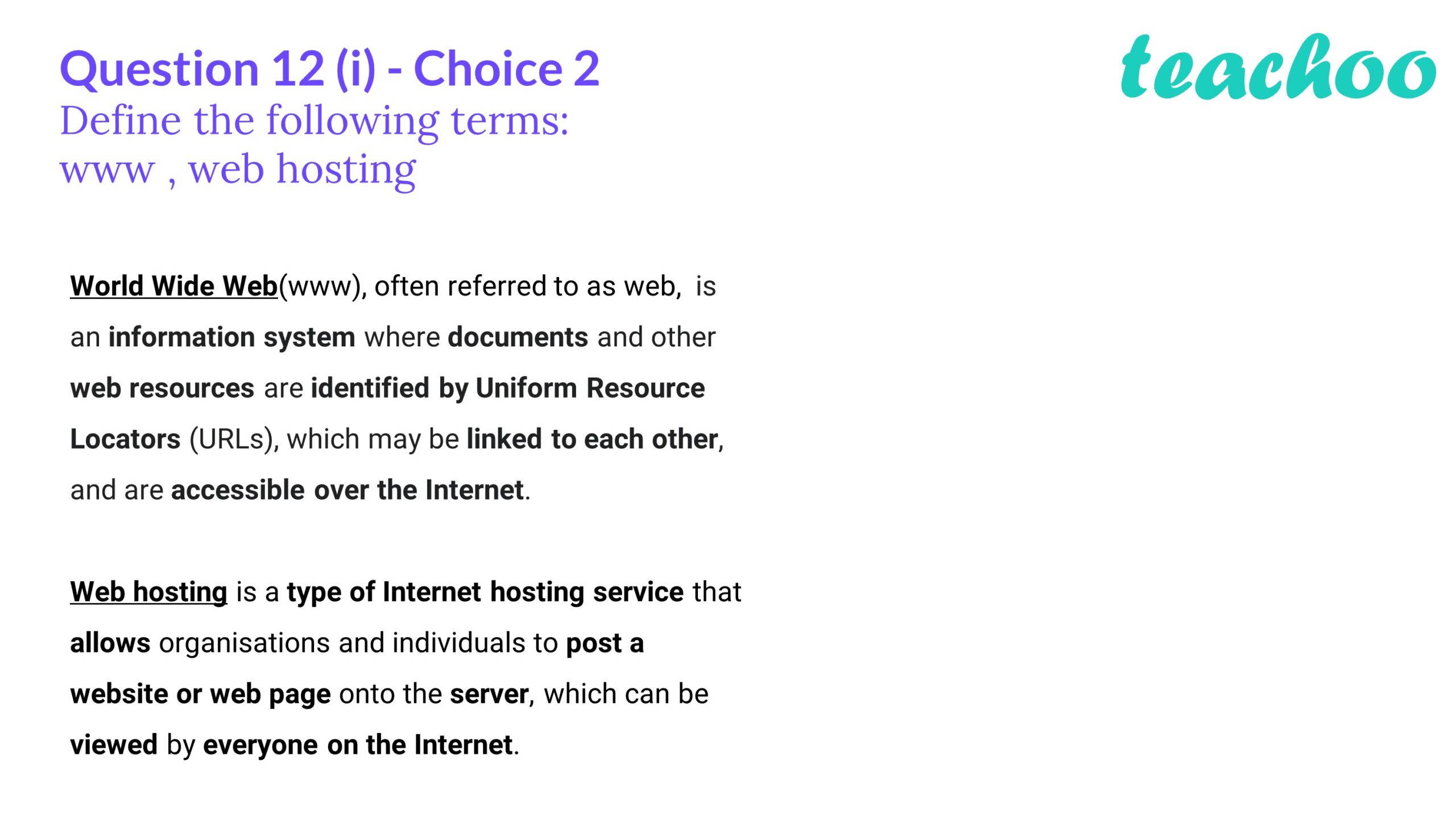Understanding Web Hosting for Class 12 Students
In the digital age, having a website is essential for individuals and businesses alike. However, for a website to be accessible to the world, it needs to be hosted on a server. This is where web hosting comes into play. In this article, we will explore the meaning of web hosting, its importance, and how it works, specifically tailored for Class 12 students.
What is Web Hosting?
Web hosting is a service that allows individuals and organizations to make their websites accessible via the World Wide Web. In simple terms, web hosting is like renting space on the internet to store your website’s files and data. These files are stored on servers, which are powerful computers that are always connected to the internet. When someone types your website’s domain name into their web browser, the hosting server delivers the website’s content to their device.
Importance of Web Hosting
Web hosting is crucial for ensuring that your website is always available and accessible to visitors. Without web hosting, your website would not be visible on the internet, rendering all your hard work creating the site useless. Additionally, web hosting providers offer security features, backups, and technical support to help you keep your website secure and running smoothly.
How Does Web Hosting Work?
When you sign up for a web hosting service, you are essentially renting space on a server to store your website’s files. These files can include images, videos, HTML documents, and more. The web hosting provider is responsible for maintaining the server’s hardware and software, ensuring that your website is always accessible to visitors. When someone accesses your website, the hosting server retrieves the necessary files and displays them on the visitor’s browser.
Types of Web Hosting
There are several types of web hosting services available, each catering to different needs and budgets. Shared hosting is the most cost-effective option, where multiple websites share resources on the same server. VPS hosting provides more dedicated resources, while dedicated hosting offers an entire server for your website. Cloud hosting is a scalable and reliable option that utilizes multiple servers to host your site.
Conclusion
Web hosting is the backbone of any website, ensuring that it is accessible to the world at all times. By understanding the basics of web hosting, Class 12 students can gain valuable insights into how websites function and the role of servers in the digital landscape. Whether you are creating a personal blog or starting an online business, choosing the right web hosting provider is crucial for the success of your website.
